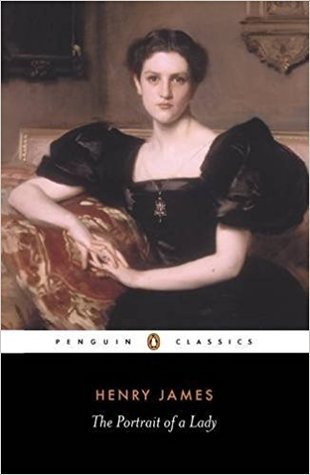Rereading The Portrait of a Lady by Henry James
/

My rereading of this book, which I first encountered in college, was less positive than I expected. I’d had it in mind to read the novel again for a long time but never had done so, unlike other of James’s novels, like The Wings of the Dove, which I’ve read a couple of times. There are a few books from my past that I have wanted to re-encounter, and this was one, and I looked forward to it. I have been slowly going through all of James, and the experience has been rewarding, especially in the case of Washington Square, which I liked at least as much on the second reading; I mention this to point out it’s not the case that I’ve suddenly lost my taste for Henry James. It’s this novel in particular. What he writes here hinges on the character of Isabel Archer, and what has happened for me is that she has faded, and was better in memory. This was not helped by seeing the movie version of the story with the very pale performance by that certain actress. There is something hopelessly strained, for me, in the portrait of her. We are told throughout the book that Isabel is singular, fascinating, lively, unpredictable, and when I first read the book I must have agreed with this assessment. But why exactly is she those things? Where is the liveliness, the fascination? She sits so elegantly in chairs or window seats or walks in gardens or puts on clothes or takes them off and all of it feels mundane and lifeless, except for James’s assertions. Every man proposes to her within a few days of meeting her and I can’t for the life of me think why. She does almost nothing except anticipate a grand future. Most of the men she meets retain a long-lasting obsession with her. I understand that she’s wealthy and that Osmond likes that, and his attraction to her is more or less easy to follow, and has its limits. But she had this attractive quality even before the legacy that her uncle leaves her, or so we’re told. The fact that I can’t see the truth of her fascination leaves the rest of the novel without a center. It contrasts poorly with a similar novel like Middlemarch, where Dorothea’s character and interest are well established before she makes her mistaken marriage to Casaubon, for similar reasons to Isabel’s alliance, to serve a man who appears greater than she. Maybe it’s the style of the book that holds such sway, including the famous scene where she sits in a chair and thinks about the choices she’s made. Though it’s not as if the book isn’t littered with long paragraphs of her thought before that. At any rate, I’d think it not a good idea to revisit books like this one, that I remember fondly, except that it has worked often enough in the past. My opinion of Isabel has changed maybe because I’ve read much more writing by women about women in the meantime, and this doll-like heroine feels a bit tepid.
